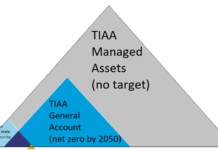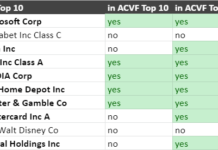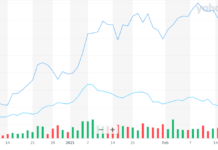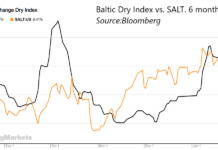Often, knowing more about a company is less useful than knowing just a few of the right things. Knowing the right questions to ask can help investors wade through a sea of mostly irrelevant information.
Take a moment to answer the following poll:
The key to this question was the stated goal of "outperforming other solar stocks." An investor who is only hoping to achieve returns equal to the average solar stock would most likely choose to invest in an index of such stocks, most likely by purchasing shares of one of the Solar ETFs. Hence, the assumption that an investor considering individual stocks is most likely looking for out performance.
Achieving out performance requires finding market inefficiencies. In general, the market is efficient, meaning that most publicly available information is already incorporated into stock prices. Information which is useful in achieving out performance, in contrast, is either not broadly available, or not broadly acknowledged. Information may be available but not acknowledged because most investors have some behavioral or emotional reason for not seeking it out or believing it.
Hence, the best answer to the poll is "C. The most-followed analyst of MySolar made a mistake in his calculations, without which his estimate for next year’s earnings would be 5% higher." Although a 5% earnings mis-estimate is relatively small, all of the other answers refer to information which is likely to already be incorporated in the stock price. The other answers refer to information which is likely to be broadly available, and hence will already be reflected in MySolar’s stock price.
Ignoring the Obvious
While the example given above would be useful information, it would also be extremely difficult for a small investor to discover. This is information which has not been incorporated into stock prices because only investors who have spent hours or days combing over analyst reports are aware of it.
Fortunately, it requires much less work to uncover useful information that other investors are ignoring for emotional reasons. In other words, the astute investor can take advantage of others’ denial. As Upton Sinclair said, "It’s difficult to get a man to understand something if his salary depends on him not understanding it." More generally, we tend to deny the truth of facts that, if acknowledged, would require action we find costly or unpleasant.
I believe that the inconvenience and cost of dealing with the looming crises of climate change and peak oil are the main reasons that there continues to be a broad segment of the population intent on denying that they exist, despite the evidence to the contrary. As a human being, I find this endlessly frustrating. We’re likely to continue burning coal and driving Hummers until some disaster forces us to reconsider the implications of our actions, even though the costs of dealing with the problems we are creating continue to escalate in the meantime.
The Fruits of Denial
As an investor, Climate denial and Peak Oil denial are the source of endless opportunities for investment out performance. I may be forced to live on a planet that is being ruined by our collective denial, but at least I can console myself with profits arising from that same denial.
This, of course, is the main reason I focus my investing and writing on clean energy. I don’t have the patience to spend hours and hours looking for mistakes in analysts’ stock reports. Denial, on the other hand, will end slowly over time, as the defenders of the old order look increasingly more ridiculous. As denial recedes, the facts, which have been obvious for at least a decade to those who were willing to see them, will continue to be incorporated into market prices, broadly helping companies whose business reduced net carbon emissions or oil consumption.
Clean energy investors would find themselves laughing all the way to the bank, if it were not for the fact that we’re going to need every penny of profit to deal with the enormous mess we’re likely to be in. But that will be a lot better than being broke and in the same mess.
DISCLOSURE: None.
DISCLAIMER: The information and trades provided here and in the comments are for informational purposes only and are not a solicitation to buy or sell any of these securities. Investing involves substantial risk and you should evaluate your own risk levels before you make any investment. Past results are not an indication of future performance. Please take the time to read the full disclaimer here.








